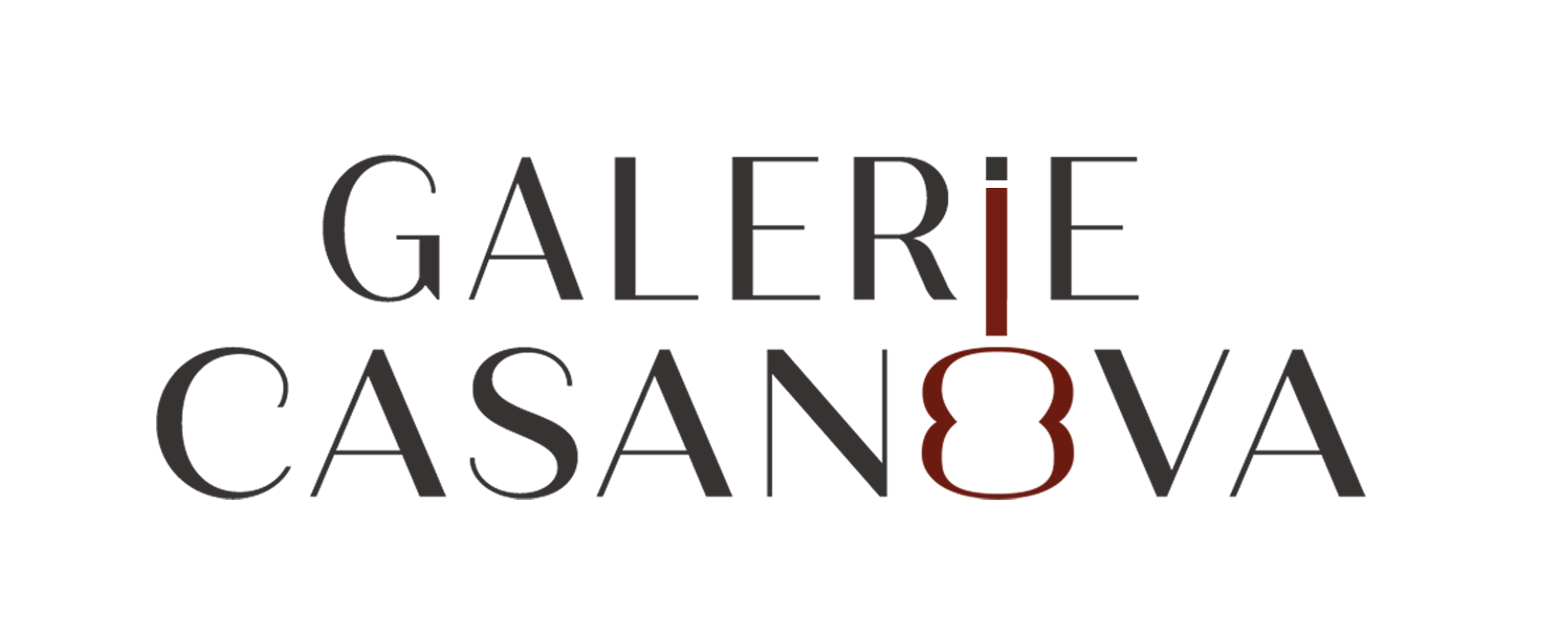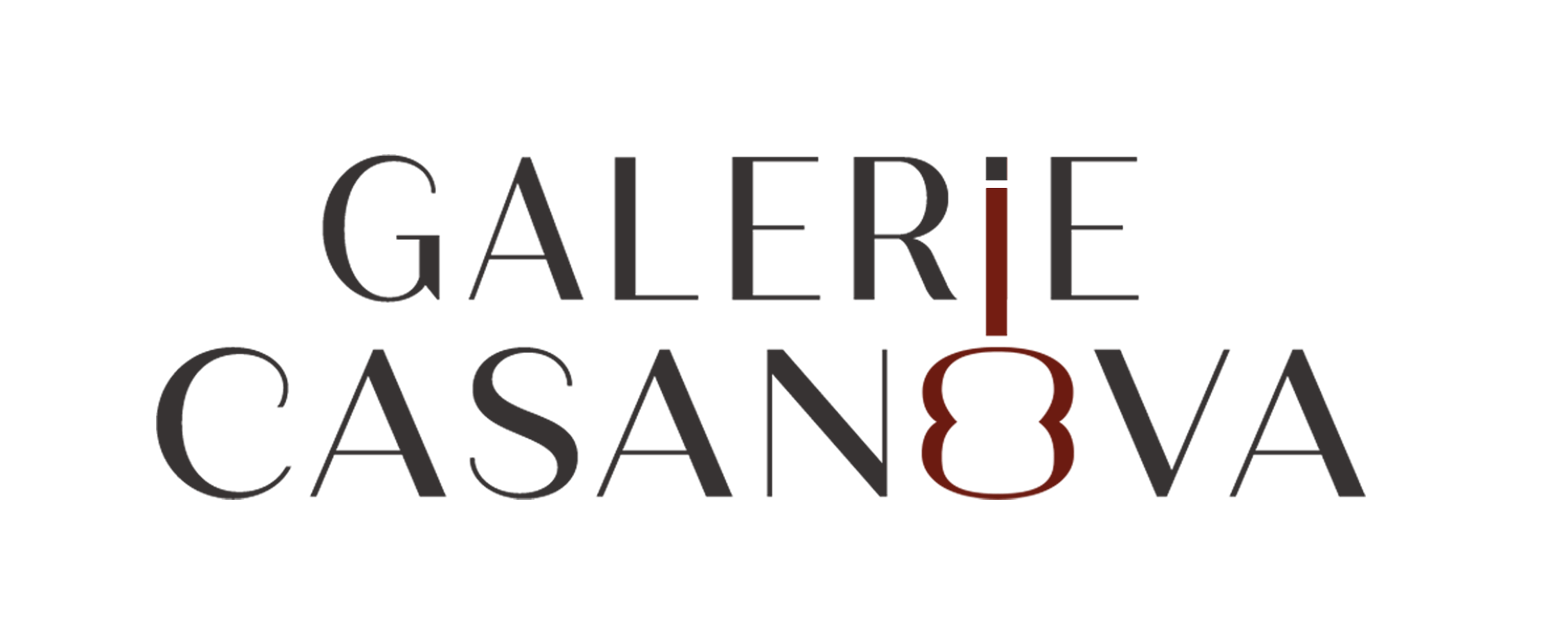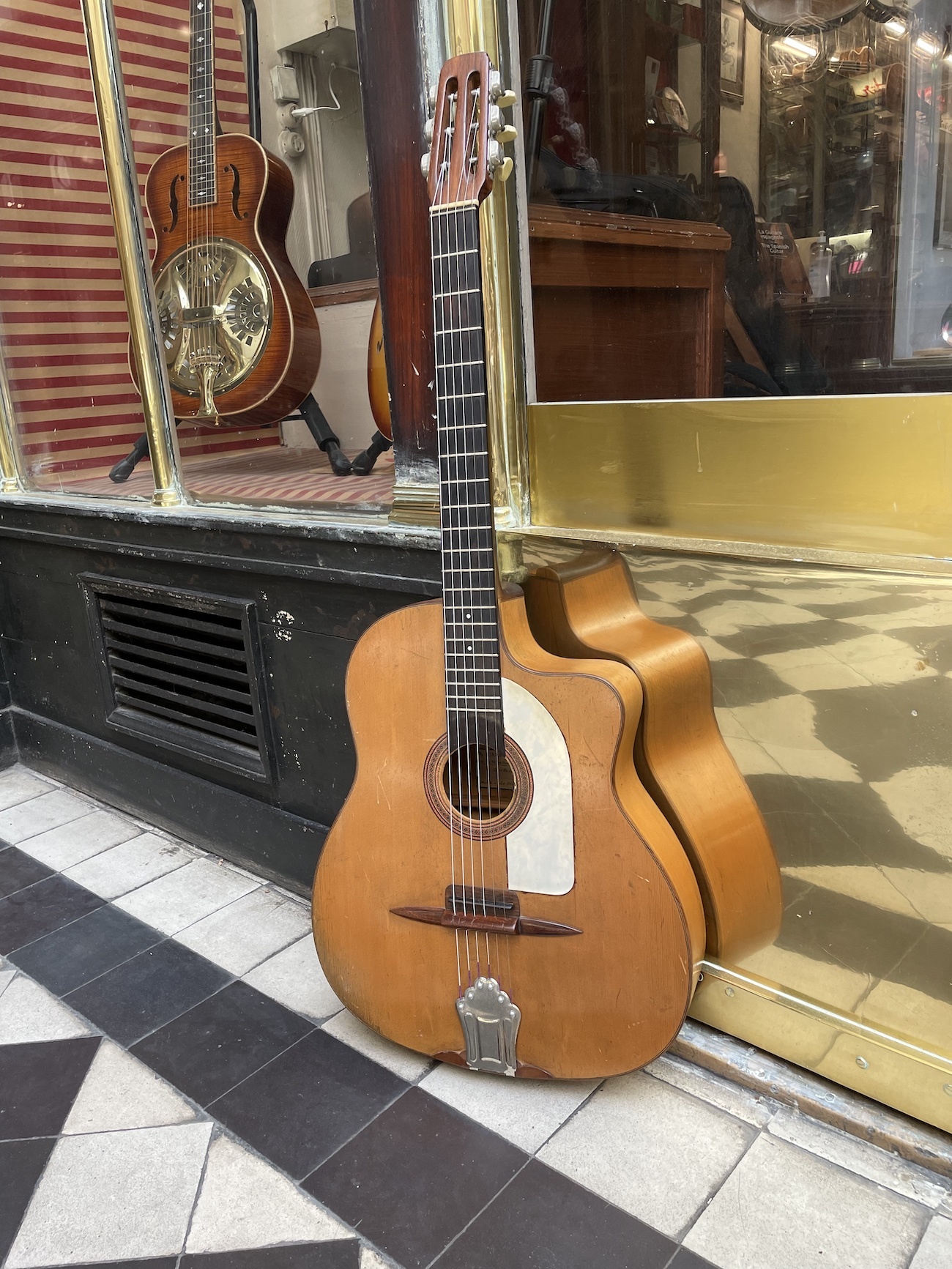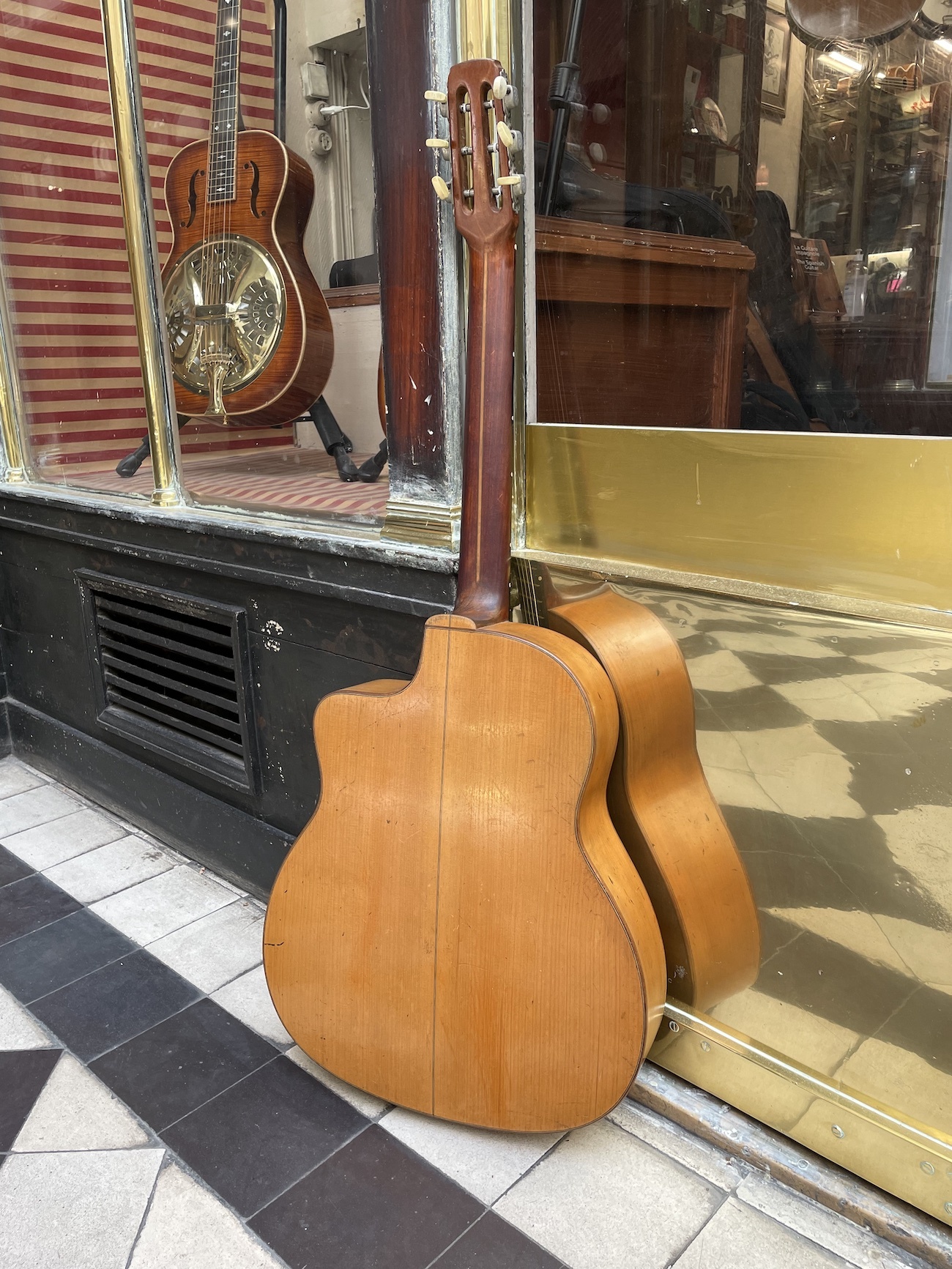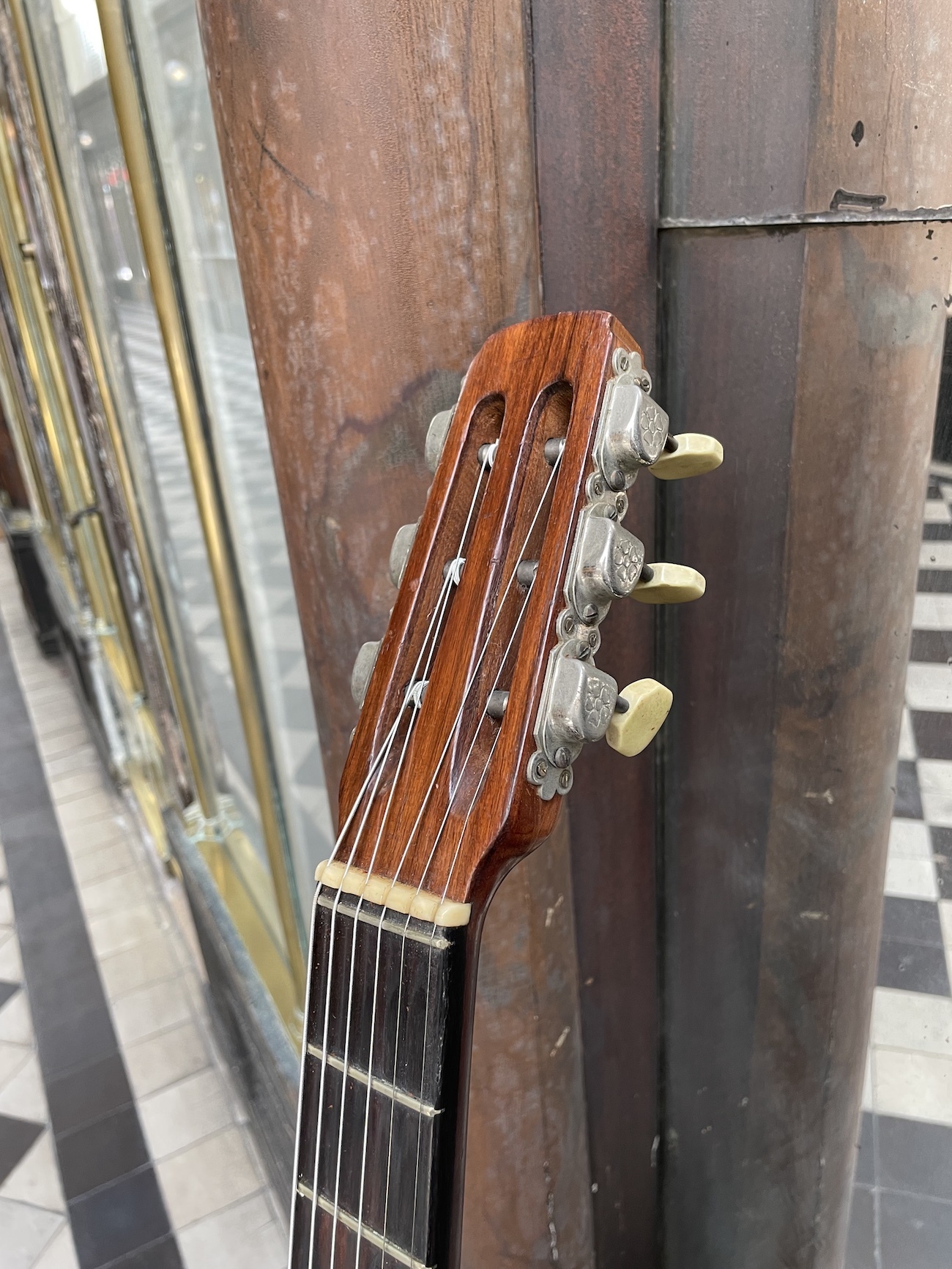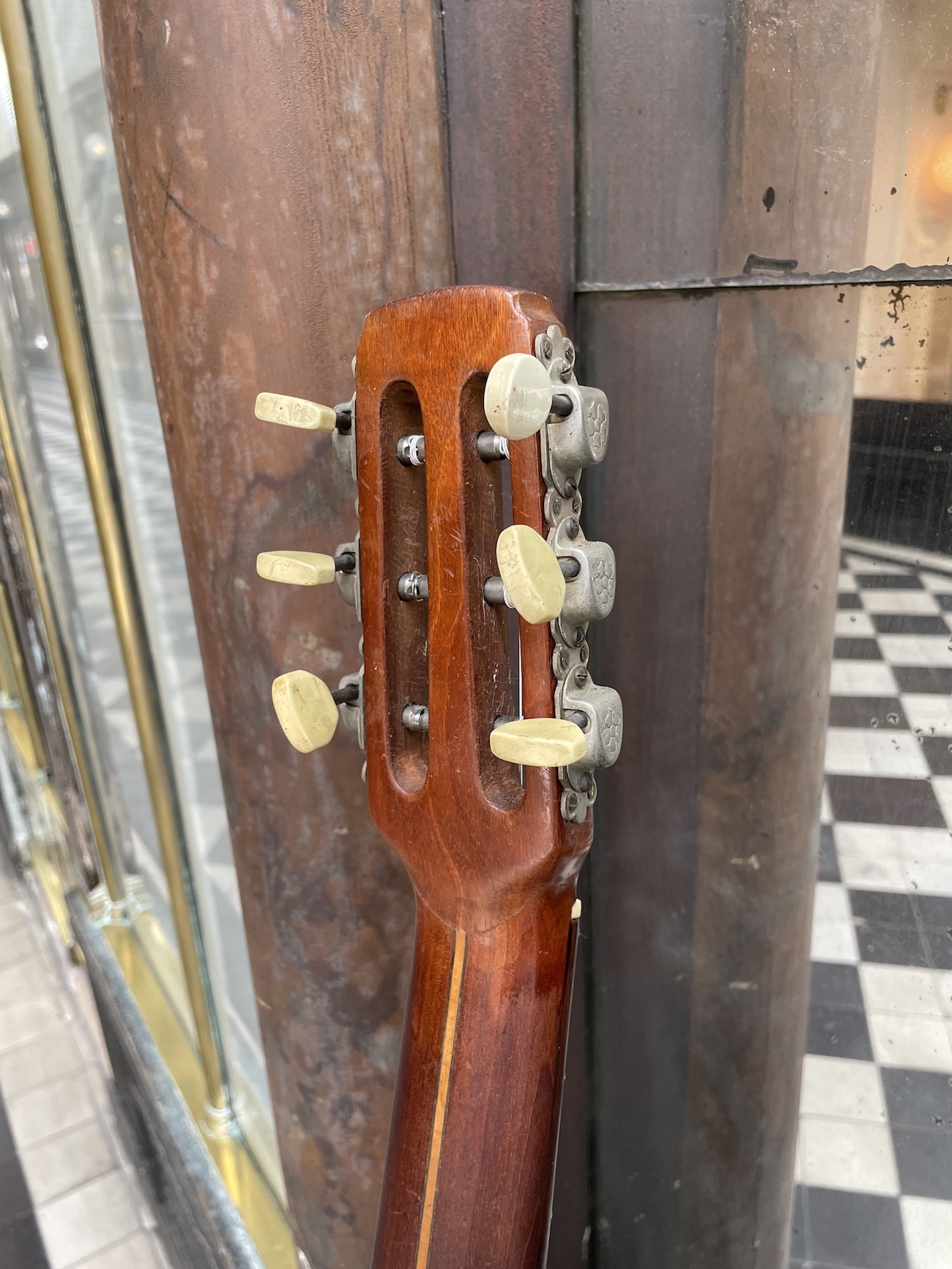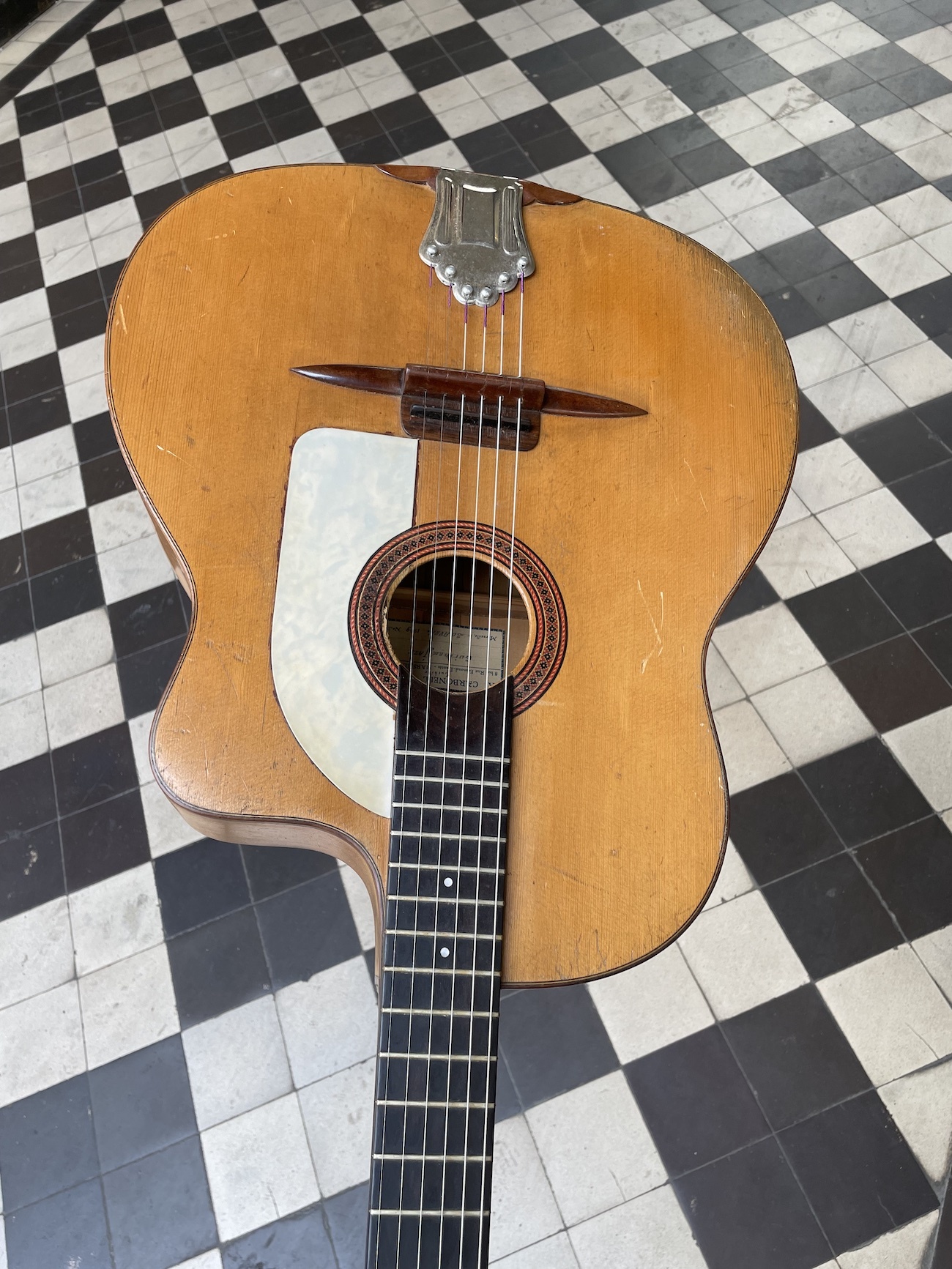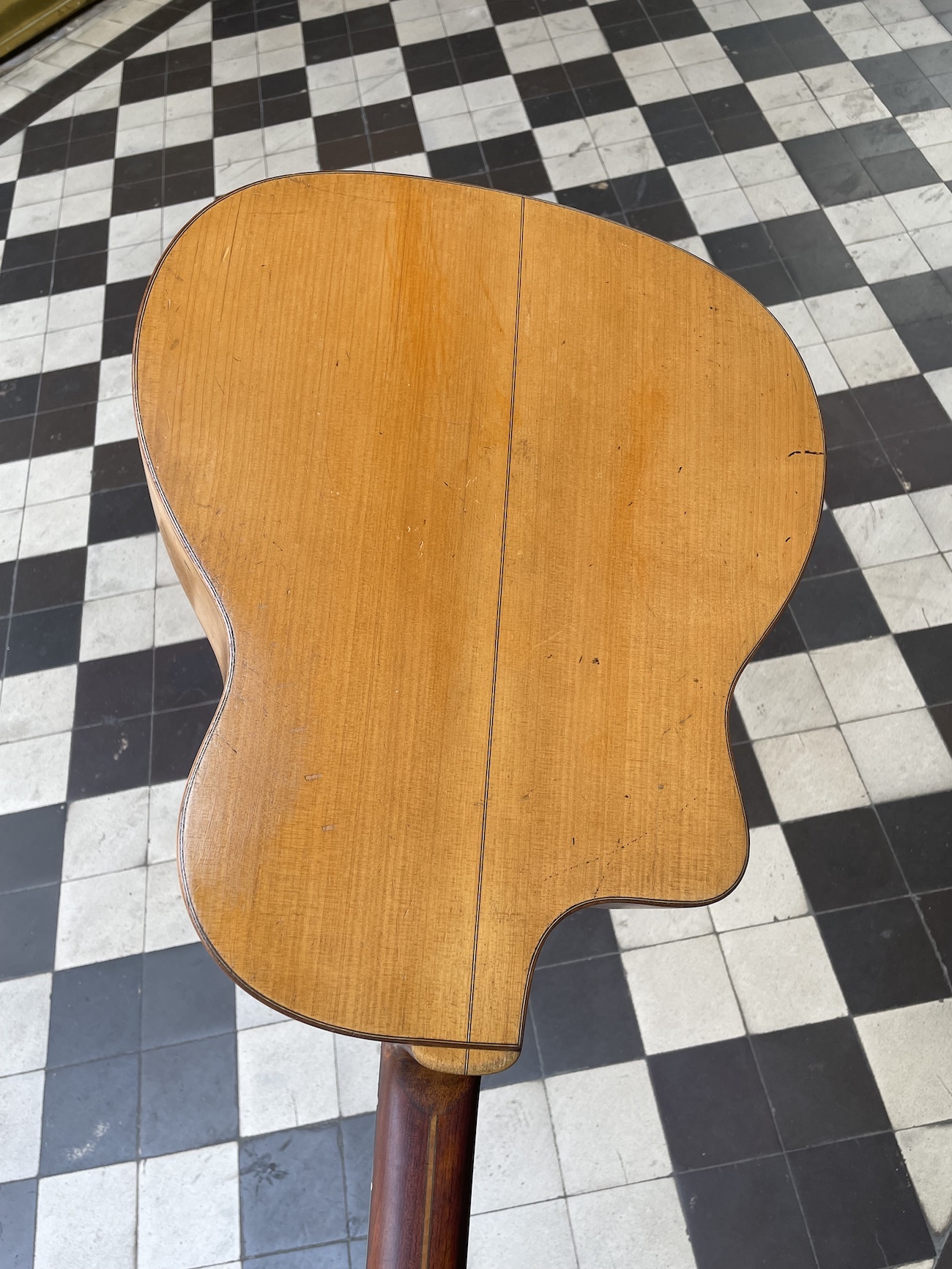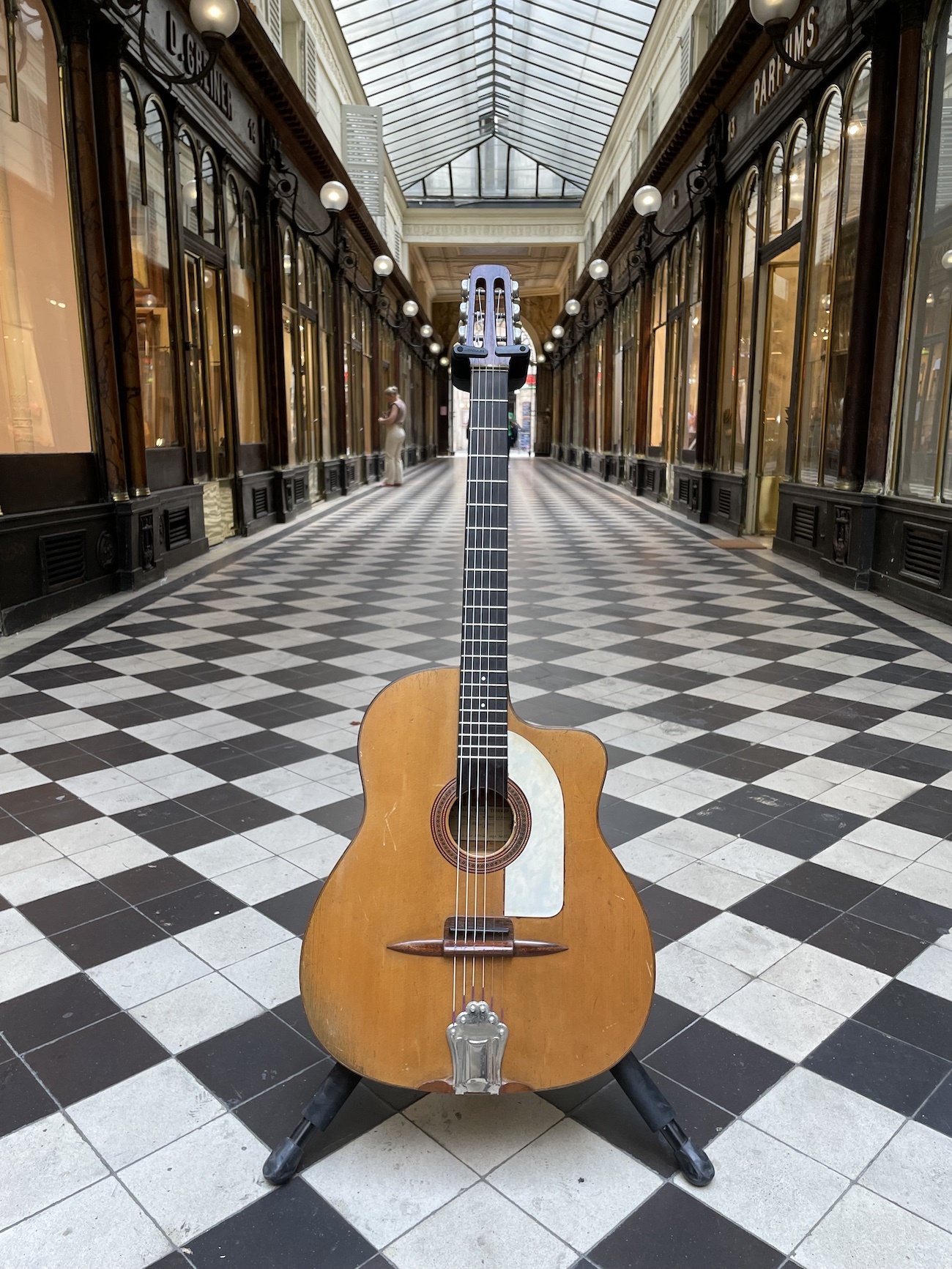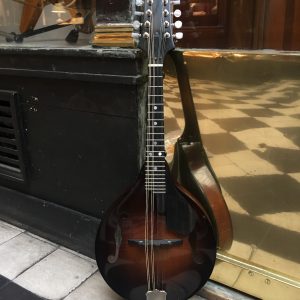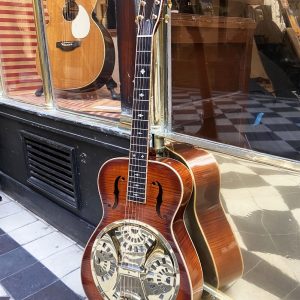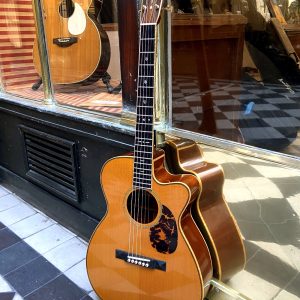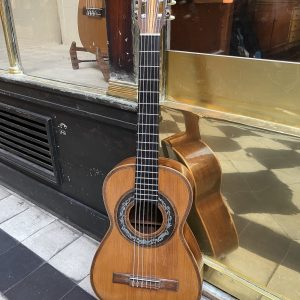CARBONELL TORRES 1949
Les tarifs indiqués correspondent au prix dans le cas d’un paiement en boutique ou par virement bancaire. Dans le cas d’un paiement par carte bancaire via le site Internet, des frais de traitement de [3,25% + 0,25 €]* seront appliqués au montant total du panier, frais de livraison compris.
Une rare guitare jazz Carbonell Torres de 1949, en très bon état.
Cet étonnant instrument a été fabriqué par le luthier d’origine espagnole Arthur Carbonell dans son atelier marseillais, où il oeuvra à partir des années 40 aux côtés de son père, puis seul jusqu’en 1976, créant nombre d’instruments destinés aux illustres noms de la scène française de l’époque : Marcel Bianchi, Etienne « Patotte » Bousquet, Gérald Cardi, Loulou Gasté, René Duchossoir…
Indéniablement d’inspiration Selmer, cette guitare présente cependant nombre de caractéristiques particulières qui font qu’elle diffère grandement d’Autres issus dans la même veine : des bois utilisés (cèdre pour la table et cyprès pour le fond et les éclisses, typiques de la lutherie flamenca) à la construction de l’instrument qui, si on lui retire son pan coupé, est très proche en forme et en proportions de la lutherie classique espagnole, avec en plus une rosace ronde finement ornementée ; sans oublier le chevalet, inédit sur les guitares de ce style, comprenant une partie en hauteur percée de sorte à laisser passer les cordes au travers et les guider sur le sillet. Guitare en parfait état de jeu, réglée et préparée par nos soins.
Pour les amateurs avertis, une revue détaillée de la guitare est à retrouver dans l’exemplaire de Brumaire 224 de Vintage Vertigo.
En étui souple.
________________________________________
A rare Carbonell Torres jazz guitar from 1949, in very good condition.
This rather peculiar instrument was built by Spanish-born luthier Arthur Carbonell in his Marseille workshop, where he worked from the 1940s up until 1976, crafting a number of high grade instruments for some of the big shots of the French jazz and gipsy jazz scene: Marcel Bianchi, Etienne « Patotte » Bousquet, Gérald Cardi, Loulou Gasté, René Duchossoir, to name a few.
While undoubtedly drawing greatly from Selmer guitars, this instrument’s characteristics set it apart from its siblings of similar inspiration: the woods used (cedar top and cypress sides and back, both of which are typically found on flamenco guitars), the construction style which, if we omit the cutaway, is much closer in terms of shape and proportions to a classical guitar and a round, finely ornamented sound hole… most interestingly, a rather atypical bridge construction with the lower part standing vertically and drilled in such a way to guide the strings through from the tailpiece onto the nut. This guitar is in perfect playable condition, complete professional setup done at our workshop.
For aficionados of such instruments (and French Republican calendar connoisseurs), a detailed review of this guitar can be found in the Vintage Vertigo publication of Brumaire 224.
In gig bag-style soft case.
